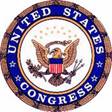
There are some great inventions that cannot be protected by patent. Laws of nature, such as electromagnetism , cannot be patented. Abstract ideas, such as mathematical formulae , cannot be patented. Natural phenomena, such as a naturally occurring bacteria, cannot be patented. These judge-made exceptions to ‘patentable subject matter’ do not appear in the statute.*
In recent years, the Supreme Court has issued decisions that have extended these exceptions and introduced substantial confusion and uncertainty into the question of whether an invention can be the subject of a patent, particularly in the fields of computer-implemented inventions and biotechnology. The concept of an ‘abstract idea’ has been particularly problematic and the Supreme Court has steadfastly refused to provide a working definition of a prohibited ‘abstract’ invention. In the absence of a cogent definition, the lower courts, the USPTO and invention owners are reduced to comparing a particular invention to other inventions considered in prior court decisions, which has led to a lack of certainty and inconsistent results.
Congress has finally noticed. The leaders of the relevant House and Senate committees have developed an agreed framework and floated proposed legislation to try to fix patent eligibility by eliminating the judge-made exceptions in favor of specific statutory exceptions.
This is huge. Whether this specific draft passes or not, the momentum is finally behind reform in Congress, on both sides of the aisle and in both the House and Senate. The legislation is in a very early stage and the critics are already stepping up. We’ll keep you apprised.
*’Patentable subject matter’ is the starting point for whether an invention will receive a patent. Even if an invention is ‘patentable subject matter,’ it must still meet all of the other requirements to obtain a patent, including that the invention is novel, unobvious and has utility.
–Robert Yarbrough, Esq.

